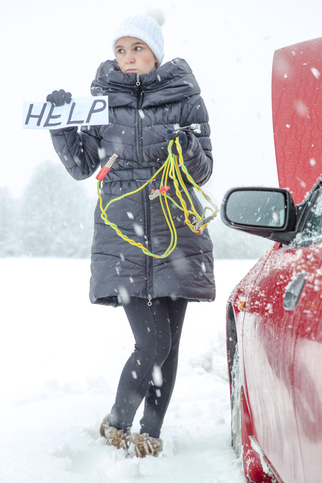
Why Your Battery and Charging System Fail in Winter
January 23, 2018 9:52 pmWhen you get in your car and turn the key in the ignition, you expect to hear the engine start. If the engine does not rev up, then there may be a problem somewhere under the hood, either with the battery, the charging system or a connector. However, you do need to consider the cold weather as a part of the problem, because winter is the time of year when vehicle batteries fail the most.
Let’s find out from an automotive repair shop in Madison, TN how outdoor temperature plays a role in battery performance, as well as some of the reasons why your car’s battery and charging system tend to fail during cold winter weather.
Temperature and car batteries
At startup, a charge is generated to the battery terminals—it’s heat that accelerates an electro-chemical reaction inside the lead acid battery where the lead plates are in electrolyte liquid. This powers your vehicle, so it makes sense that some of the battery’s life is drained every time the engine turns on. In winter, however, cold temperatures slow down these chemical reactions. The battery—although it can withstand low temperatures to a point—might become sluggish, but doesn’t necessarily mean it has an insufficient charge. What it does mean is the cold has hampered the battery power needed to start the vehicle and keep it running.
Here’s a closer look at some of the reasons why your battery is more likely to fail during the winter:
- It has to work harder: The first thing to note is that motor oil thickens as temperatures drop. This means your vehicle battery will need more power to move, and may even require several tries to get the engine powered up. The older the battery, the more challenging this can be. To avoid overworking your battery, make sure it has the right cold cranking amperage (CCA) rating for your climate. The battery’s ability to start an engine in bitterly cold weather will depend on the CCA number—the higher the number, the better it will work in the cold.
- Warming up is difficult: In order for the car battery to work, it first needs to warm up. In this case, there’s a chemical reaction that occurs to incite and hold a charge. As mentioned earlier, cold temperatures slow down these chemical reactions, which explains the sluggishness of your battery at startup during winter.
- Other features use the battery: The engine is not the only thing that uses the battery. Battery power also gets sucked up by other car features, further pushing the battery toward total drainage. During frigid winter days, leave the headlights, radio and heater off when starting your vehicle. You might also consider not charging multiple portable devices at the same time. Unplug mobile electronics like cell phones, chargers and tablets if you don’t need them while driving.
Cleaning, maintaining and not overworking your car battery this winter can help extend its life—let the pros at Rivergate Muffler & Auto Repair clean your battery and replace worn or damaged battery cables. We are also your go-to automotive repair shop in Madison, TN for car battery replacements. Call us today!
Categorised in: Auto Repair Shop
This post was written by Writer

Comments are closed here.